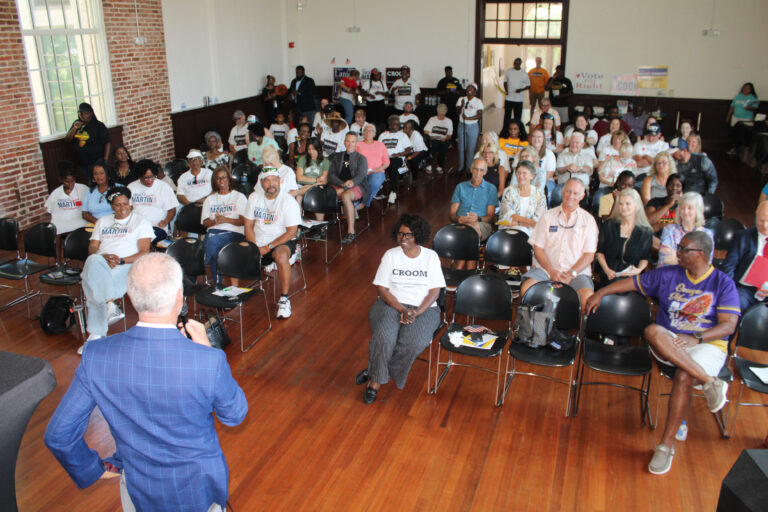Legacy Post Disclaimer
This is a #Legacy post imported from The Apalachicola Time’s previous platform. If you’re experiencing issues with this article, please email us at news@nevespublishing.com.
Supreme Court shuts out Florida 9-0
TALLAHASSEE — After years of legal battling, the U.S.
Supreme Court last week unanimously rejected a lawsuit in which Florida argued Georgia
has used too much water in a river system shared by the states.
The 12-page ruling dismissed the lawsuit that Florida filed
in 2013 after the oyster fishery collapsed in Franklin Countys Apalachicola
Bay. Florida contended that Georgia drew too much water in the
Apalachicola-Chattahoochee-Flint river system, which starts in northern Georgia
and ends in Apalachicola Bay, and that more water should be directed to
Florida.
Justice Amy Coney Barrett wrote in the April ruling that
Florida did not prove Georgias water use had caused damage in the bay and the
Apalachicola River. The ruling upheld a recommendation from a special master,
who was appointed by the Supreme Court and sided with Georgia in a December
2019 recommendation.
Of course, the precise causes of the bays oyster collapse
remain a subject of ongoing scientific debate, Barrett wrote. As judges, we
lack the expertise to settle that debate and do not purport to do so here. Our
more limited task is to evaluate the parties arguments in light of the record
evidence and Floridas heavy burden of proof. And on this record, we agree with
the special master that Florida has failed to carry its burden.
Florida contended that Georgia farmers have used too much
water to irrigate crops, causing downstream damage to the Apalachicola River
and the bay. But Georgia argued, in part, that the oyster industry sustained
damage because of overharvesting after the 2010 Deepwater Horizon disaster sent
oil spreading through the Gulf of Mexico.
The Supreme Court ruling pointed to overharvesting as a key
factor undercutting Floridas arguments.
Floridas own documents and witnesses reveal that Florida
allowed unprecedented levels of oyster harvesting in the years before the
collapse, Barrett wrote. In 2011 and 2012, oyster harvests from the bay were
larger than in any other year on record. That was in part because Florida
loosened various harvesting restrictions out of fear — ultimately unrealized
— that the Deepwater Horizon oil spill would contaminate its oyster
fisheries. A former Florida official, one of Floridas lead witnesses,
acknowledged that these management practices bent Floridas fisheries until
(they) broke.
The ruling also pointed to a lack of reshelling oyster
bars by Florida.
Reshelling is a century-old oyster management practice that
involves replacing harvested oyster shells with clean shells, which can serve
as habitat for young oysters, Barrett wrote. Yet in the years before the
collapse, while Florida was harvesting oysters at a record pace, it was
simultaneously reshelling its oyster bars at a historically low rate.
While Florida filed the lawsuit in 2013, battles about water
in the river system date to the 1990s. Florida sought in the lawsuit what is
known as an equitable apportionment of water, which could have led to new
limits on water used by Georgia farmers.
The Supreme Court heard arguments in February, after Special
Master Paul Kelly, a New Mexico-based appellate judge, issued his 81-page
recommendation in 2019 that supported Georgia.
Kelly was appointed special master after a divided Supreme
Court overturned a 2017 recommendation by another special master, Ralph
Lancaster, who said Florida had not proven its case by clear and convincing
evidence that imposing a cap on Georgias water use would benefit the
Apalachicola River.
Writing for a 5-4 majority in 2018, Justice Stephen Breyer
said Lancaster had applied too strict a standard in rejecting Floridas
claim.
But last weeks ruling flatly rejected Floridas arguments.
Considering the record as a whole, Florida has not shown
that it is highly probable that Georgias alleged overconsumption played more
than a trivial role in the collapse of Floridas oyster fisheries, Barrett
wrote. Florida therefore has failed to carry its burden of proving causation
by clear and convincing evidence.
Florida Agriculture Commissioner Nikki Fried issued a
statement that said the ruling is “disappointing for the thousands of
families whose livelihoods depend on the waters of the Apalachicola-Chattahoochee-Flint
River Basin.”
“The court may have disagreed, but the hard-working
Floridians of our oyster fisheries know that water overconsumption by Georgia
has contributed to a 98 percent decline in value of Florida’s oyster
catch,” the statement said. “While we work to protect Floridas
waters, our Division of Aquaculture will continue working hard to support our
oyster industry every way that we can.
Amid the court battle, the Florida Fish and Wildlife
Conservation Commission in December suspended wild oyster harvesting in the bay
as part of a $20 million restoration effort.
In his statement, U.S. Rep. Neal Dunn called the decision deeply
disappointing. There are many in my district who are dependent on the
Apalachicola River and will continue to be heavily impacted for years to come.
As we move forward, I will keep working with state and local partners to help
those that have been affected by this ongoing battle.




Meet the Editor
David Adlerstein, The Apalachicola Times’ digital editor, started with the news outlet in January 2002 as a reporter.
Prior to then, David Adlerstein began as a newspaperman with a small Boston weekly, after graduating magna cum laude from Brandeis University in Waltham, Massachusetts. He later edited the weekly Bellville Times, and as business reporter for the daily Marion Star, both not far from his hometown of Columbus, Ohio.
In 1995, he moved to South Florida, and worked as a business reporter and editor of Medical Business newspaper. In Jan. 2002, he began with the Apalachicola Times, first as reporter and later as editor, and in Oct. 2020, also began editing the Port St. Joe Star.